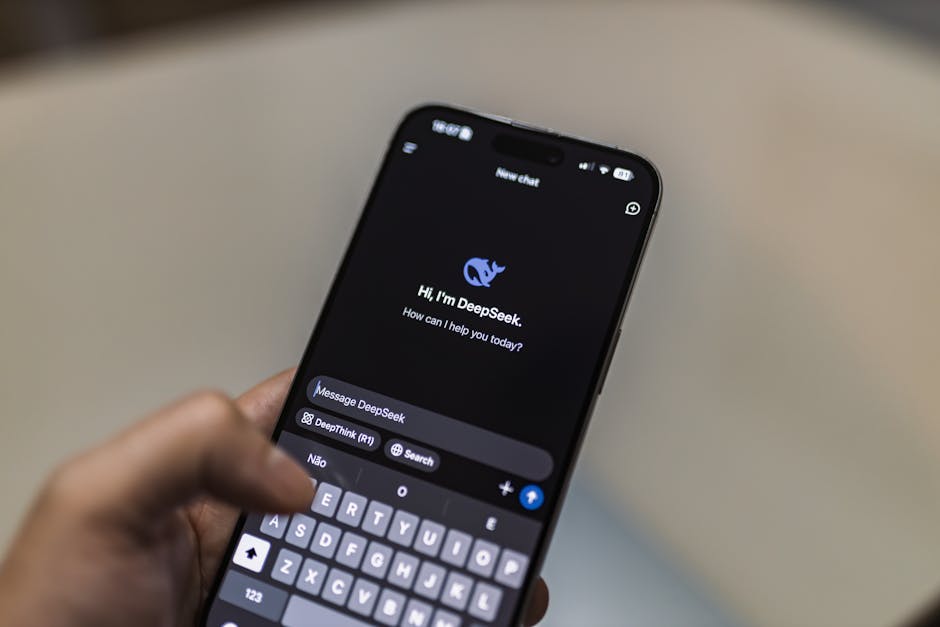Introduction
Ai smartphones in 2025 are not only used for calling, texting or browsing but beyond that they have becoming digital partners that learn from us, predict our needs, and support our lifestyles by its manmade intelligence.
In 2025, Ai has become very necessary. With breakthroughs in quantum computing (see our blog: Quantum Computing in 2025), 5G networks, and cloud AI, smartphones are set to transform how we live, work, and even earn money online.
Ai has been used in day to day tasks from health monitoring to home control systems. From finance suggestions to learning something new.
🔥 10 Best AI Smartphones in 2025
Samsung Galaxy S25 Ultra
- Processor: Snapdragon 8 Elite for Galaxy with upgraded NPU.
- Battery: 5,000 mAh, 45W fast charging, AI-optimized power management.
- Camera: 200MP main sensor, advanced zoom, AI scene optimization.
- Storage/RAM: Up to 1TB storage, 16GB RAM.
- AI Features: Circle to Search, Generative Edit (with shadow removal), AI Brief summaries, Instant Slow-Mo, live translation.
Google Pixel 9 Pro
- Processor: Google Tensor G4 chip with Gemini Nano AI.
- Battery: ~4,800 mAh with adaptive charging.
- Camera: 50MP + 48MP telephoto, AI “Best Take,” Magic Editor, Video Boost.
- Storage/RAM: Up to 512GB storage, 12GB RAM.
- AI Features: Gemini Live voice interaction, AI transcription, object recognition, multimodal AI input.
Apple iPhone 16 Pro Max
- Processor: A18 Pro chip with 16-core Neural Engine.
- Battery: Improved efficiency, ~4,700 mAh equivalent.
- Camera: Triple lens setup with 48MP main, 5× telephoto zoom, Dolby Vision 4K video.
- Storage/RAM: Up to 1TB storage, 8GB RAM.
- AI Features: Apple Intelligence (private on-device AI), smart Siri upgrades, predictive text/image suggestions, Camera Control gestures.
OnePlus 13 Pro
- Processor: Snapdragon 8 Gen 4.
- Battery: 5,400 mAh, 120W fast charging.
- Camera: Hasselblad-tuned triple camera system with AI low-light boost.
- Storage/RAM: Up to 512GB storage, 16GB RAM.
- AI Features: Battery health optimization, AI photo enhancement, voice-to-text, adaptive performance tuning.
Xiaomi 15 Ultra
- Processor: Snapdragon 8 Gen 4 with liquid cooling.
- Battery: 5,300 mAh, 90W fast charging.
- Camera: 50MP quad setup, AI scene recognition, Leica partnership for imaging.
- Storage/RAM: Up to 1TB storage, 16GB RAM.
- AI Features: Intelligent thermal management, AI photo editing, real-time translation, smart performance modes.
Asus Zenfone 12 Ultra
- Processor: Snapdragon 8 Gen 4.
- Battery: 5,000 mAh, 65W fast charging.
- Camera: 200MP primary with AI gimbal stabilization.
- Storage/RAM: 512GB storage, 12GB RAM.
- AI Features: On-device AI video stabilization, AI photo optimization, adaptive gaming mode.
Samsung Galaxy S25 FE
- Processor: Exynos 2400 (region-based).
- Battery: 4,700 mAh, 25W charging.
- Camera: 50MP main with AI scene optimization, Instant Slow-Mo.
- Storage/RAM: 256GB storage, 8GB RAM.
- AI Features: Generative Edit, AI search, adaptive battery optimization, live translation.
Vivo Y400 5G
- Processor: Dimensity 7300 chip.
- Battery: 5,000 mAh, 44W fast charging.
- Camera: 64MP OIS main camera, AI beautification.
- Storage/RAM: 256GB storage, 8GB RAM.
- AI Features: AI note assist, smart document capture, AI scene detection.
Motorola Edge 50 Ultra
- Processor: Snapdragon 8s Gen 3.
- Battery: 4,500 mAh, 125W fast charging.
- Camera: Triple AI-enhanced setup with Magic Canvas editing.
- Storage/RAM: 512GB storage, 12GB RAM.
- AI Features: Real-time photo optimization, AI video stabilization, generative wallpapers.
POCO X7 Pro
- Processor: Dimensity 8300 Ultra.
- Battery: 5,000 mAh, 67W charging.
- Camera: 64MP OIS main sensor, AI super-resolution.
- Storage/RAM: 256GB storage, 12GB RAM.
- AI Features: Live translations, AI interpreters, AI-based performance boost, generative photo editing.
What Makes AI Smartphones Special?
AI vs. Traditional Smartphones
- Traditional phones → apps respond to user input.
- AI smartphones → The various apps from smartphones are automating the user experience.
Example: old phones when set alarm rings at their particular time . An AI phone checks your sleep cycle, weather, and meeting schedule, then wakes you up at the best time with the right reminder.
Why 2025 is a Breakthrough Year for AI Smartphones
- AI Hardware Chips → Companies like Qualcomm and Apple are building neural processing units (NPUs) designed only for AI tasks.
- 5G & Beyond → Ai gets faster updates with nearly about zero latency. (Also read: 5G Smartphones in 2025)
- Cloud AI & Edge Computing → we can access to powerfull ai apps like chatgpt , deepseek , grok ai , Microsoft ai even from the websites.
- Quantum Boost → Quantum based ai models are used for cloud based ai which is easily accessible from any smartphone. (see Quantum Computing in 2025)
Real-World Applications of AI Smartphones in 2025
- AI in Personal Assistants
- Siri, Amazon’s Alexa, Google Home.
- Home control system or ai based workplaces include these ai’s where if we say turn on the fan or ac , with just our voice command it will do that.
- AI in Photography
- Instant photo recognition
- Ai based editing
- AI creating 3D avatars and AR memories.
- AI in Healthcare
- Heart rate monitoring, stress detection, mental health suggestions.
- Predicting diseases early using phone + wearable integration.
- AI in Finance
- AI-powered apps help manage money.
- Prediction of stock movements (learn more at CreditMist).
- Smart budgeting apps suggest where to save or invest.
- AI in Productivity & Work
- Summarizes long emails into key points.
- Generates instant reports.
- Real-time meeting transcriptions.
How AI Smartphones Impact Everyday Technology
AI + IoT Devices
- Phones control home appliances with natural voice.
- Example: “I’m leaving home” → lights off, AC adjusted, doors locked automatically.
AI + Cloud Computing
- Access AI models from the cloud without expensive chips.
- Subscription-based AI features, like Quantum-AI as a Service.
AI + Gaming & Entertainment
- Games adjust difficulty automatically to match your skill.
- AI recommends hyper-personalized shows, music, and even generates custom content.
- Here are some suggested gaming smartphones
Challenges of AI Smartphones in 2025
- Privacy Concerns → Phones know everything about you.
- Data Security → Hackers can misuse AI predictions. (see Smartphone Security in 2025)
- Battery Life → AI processes consume more energy.
- Cost → Flagship AI smartphones might be very expensive.
Pros and Cons of AI Smartphones in 2025
Future of AI Smartphones Beyond 2025
- AI + AR Glasses → smartphones may merge with wearables.
- AI + Blockchain → secure transactions with no fraud.
- AI + Earning Opportunities → people use AI smartphones for freelancing, content creation, and trading (explore: EarnEdge).
- Quantum Integration → cloud-based quantum AI models make phones even more powerful.
Examples of AI Smartphone Leaders in 2025
- Apple iPhone 16 → AI chip with real-time health monitoring.
- Samsung Galaxy S25 → built-in quantum-secured messaging.
- Google Pixel 10 Pro → Google DeepMind integrated into Assistant.
- Huawei AI Mate → AI-driven photography and privacy-first models.
Final Thoughts – Why AI Smartphones in 2025 Matter
AI smartphones in 2025 are not just upgrades—they’re transformations. They change how we live, work, stay healthy, and earn.
If you are a tech lover, explore more on NextGenius.
If you are looking for ways to earn money with AI tools, check EarnEdge.
If you want to learn AI in stock trading and finance, explore CreditMist.
AI smartphones are the future. And the future is already in your hands.
FAQs: AI Smartphones in 2025
Q1. What is special about AI smartphones in 2025?
They use advanced AI chips and cloud AI to predict user needs, improve health tracking, and personalize experiences.
Q2. Will AI smartphones replace traditional apps?
Not completely. They will still use apps, but AI will make apps smarter and more connected.
Q3. How will AI smartphones affect jobs?
AI will reduce manual work but open new earning opportunities. (See EarnEdge).
Q4. Are AI smartphones safe?
They are powerful but raise privacy and security risks. (Read more: Smartphone Security in 2025).
Q5. Which companies are leading AI smartphones?
Apple, Samsung, Google, Huawei, and startups like Nothing are working on ai focused smartphones


